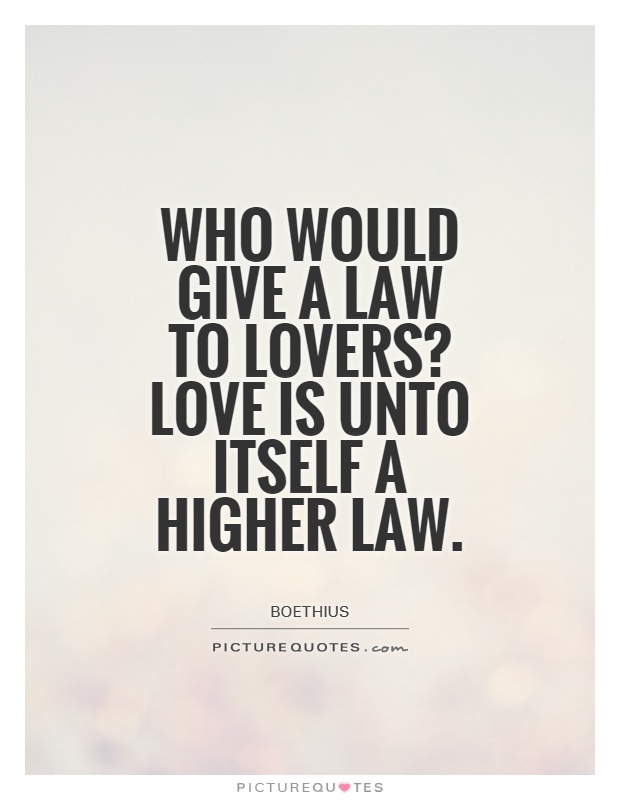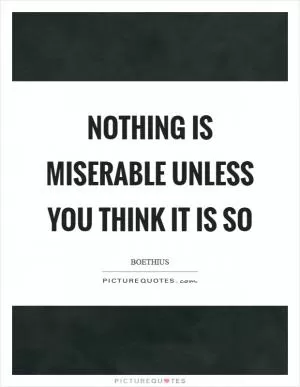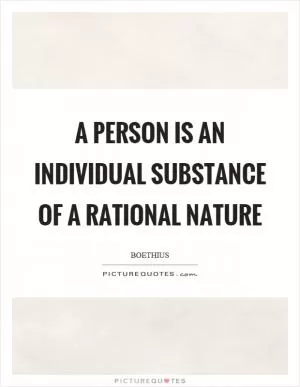Who would give a law to lovers? Love is unto itself a higher law

Who would give a law to lovers? Love is unto itself a higher law
In the context of Boethius, the quote "Who would give a law to lovers? Love is unto itself a higher law" holds significant meaning in relation to the themes of love, fate, and free will that are explored in his work, "The Consolation of Philosophy."Boethius, a Roman philosopher and statesman, wrote "The Consolation of Philosophy" while he was imprisoned and awaiting execution. In this work, he grapples with the question of why bad things happen to good people and explores the nature of happiness, fate, and the role of free will in human life.
The quote "Who would give a law to lovers? Love is unto itself a higher law" speaks to the idea that love transcends human laws and conventions. Love is a powerful force that can inspire people to act in ways that defy societal norms and expectations. In the context of Boethius' work, love can be seen as a force that guides individuals towards their true purpose and destiny, regardless of external circumstances.












 Friendship Quotes
Friendship Quotes Love Quotes
Love Quotes Life Quotes
Life Quotes Funny Quotes
Funny Quotes Motivational Quotes
Motivational Quotes Inspirational Quotes
Inspirational Quotes